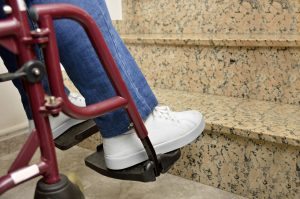
This is the next post in our series on the handling of Austin, Texas injury cases which involve paralysis. Our last article discussed calculating the damages of a paralyzed victim. It is important to understand that one will be entitled to compensation for damages already incurred as well as amounts related to future care, expenses, lost earnings, disfigurement, physical impairment, as well as pain and suffering. In this article we will discuss what one should expect at trial in such a case. Knowing what to expect from the process helps one to be better prepared when their day in Court arrives.
We have previously discussed what one should expect at an Austin personal injury trial. Many of the issues we discussed in that article also apply to paralysis cases. There are two key differences, however, in matters where a victim has been paralyzed. The first of these differences involves a heavy emphasis on experts. The second of these differences is that the defendant will often attempt to bifurcate or divide the trial into two portions. We will discuss each of these issues in turn.
The determination of damages is always a hotly disputed topic in paralysis cases. Because such cases involve large sums for future losses, the amount a Plaintiff is compensated will often depend on which side’s experts the jury finds more credible. For this reason, it is important to select an expert witness who is skilled in his or her field, who is thorough and detailed in reaching their conclusions, and, importantly, who is able to articulate their conclusions in an understandable way. The experts will be presenting complex information to jurors and must do so in a way that is relatable and easy to understand. This is why it is important to select experts who have good presentation skills in addition to good technical skills.
In serious injury cases, such as those involving paralysis, it is common for defendants to attempt to bifurcate the case. This means that instead of the jury being asked to make a decision, after they have heard evidence regarding both liability and damages, they will be asked to only hear evidence relating to liability and to make a decision as to whether the defendant was responsible for the accident. The jurors would only hear evidence relating to damages after they have made a decision regarding liability. While such a tactic is common by defense attorneys, it is our opinion that bifurcated trials deny a Plaintiff from having their full day in Court. Should the defense attempt to bifurcate a case then it is important to oppose the request and that the case be heard in a non-bifurcated manner.
Contact our office today to speak with an injury attorney handling paralysis cases. We also service Travis County cities which include Rollingwood, Round Rock, Elgin, Jonestown, Manor, Bee Cave, Lago Vista, Sunset Valley, Lakeway, Creedmoor, the Williamson County cities of Georgetown, Cedar Park, and Leander, as well as other areas of Texas.

